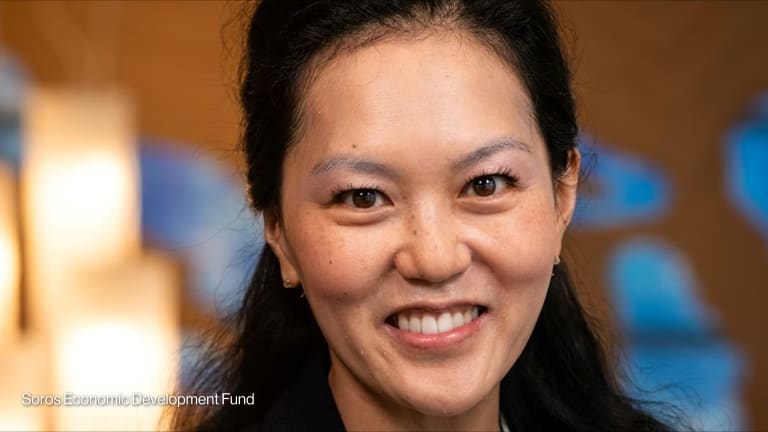
Development over the past decades has been unprecedented in world history. Extreme poverty has been halved. More than 600 million people have been brought out of absolute poverty in China alone. The enormous progress has mainly been a result of fast economic growth, exemplified by China’s 10 percent growth pattern.
But economic growth alone will not be enough to end global poverty.
Targeted policies and innovative solutions will be needed to eradicate poverty and achieve sustainable development goals. Extreme poverty will increasingly be found in weak states and in vulnerable groups such as indigenous communities, small-scale farmers, ethnic and religious minorities, and the disabled. The majority of the very poor are women, and development is slower in rural areas.
A key contribution in closing remaining development gaps will have to come from innovative solutions that can be taken to scale. Much can be achieved by doing more of what works on the ground. The Bill & Melinda Gates Foundation has identified five proven ways to save lives for $5 or less which could save hundreds of thousands of newborn children if these measures were taken to scale.
The DAC Prize for Taking Development Innovation to Scale is awarded for taking an innovative approach, instrument or mechanism beyond the pilot phase to a wider application. The objective of the DAC Prize is to promote the scaling up of innovations that address important development gaps.
More finances should be channelled into development initiatives that work on the ground and improve lives. With the DAC Prize, OECD wants to support development actors using innovation strategically to address development challenges by taking it to scale. The purpose is to encourage more systematic use of innovative development solutions with a proven track record of success. Ultimately, the DAC Prize should help scalable, innovative solutions gain broader traction in the development community and encourage donor support.
In 2014, 43 great projects were nominated for the DAC Prize and 10 compelling finalists stood out.
Two DAC Prize finalists have come up with simple solutions to increase food production and improve water quality. The winner, Katalyst from Bangladesh, provides high-quality seeds in minipackets to poor farmers as a means of helping increase their income. Over three seasons, the number of beneficiaries doubled and $14 million worth of additional vegetables were produced. Evidence Action use cheap and effective chlorination to ensure access to safe drinking water for 1.5 million people by scaling up a simple technology that has become accepted and used regularly by local communities in eastern and southern Africa.
Other finalists scale up innovative financing mechanisms to address development challenges. The Kwara State Community Health Insurance Program provides health insurance to 80,000 families in Nigeria, while Nomanini provides cash-based micropayments and prepaid mobile services to South Africans without access to banking services. The Polio Eradication Project in Pakistan is financed with a loan conversion mechanism that repays investments when polio eradication targets are met. Aavishkar II, an Indian social venture fund, offers risk financing to social entrepreneurs.
The remaining finalists focus on the importance of ensuring quality education now that more than 90 percent of children are enrolled in school. The Annual Status of Education Report, a citizen-led household survey of education covering every rural area in India, is monitoring education quality. Bridge International Academies provides quality affordable education while covering operational costs, teacher salaries and textbooks from student fees. Camfed International supports girls completing secondary education and transitioning to getting a job. The Employment Fund Program in Nepal gives skills training to 15,000 people and ensures market incentives for companies providing training for women and vulnerable groups.
We need to encourage success and do more of what works to end poverty and promote sustainable development. Time has come for action!
Submissions for the DAC Prize for Taking Development Innovation to Scale 2015 are due April 30, 2015. Devex is a proud media partner of the DAC Prize.
You can help shape our coverage on global development innovations. What do you think is an innovative idea? Let us know by leaving a comment below or by emailing news@devex.com.








